
TEMPO.CO, Jakarta - The Coca-Cola Company, a multinational soft drink producer, has announced the reintroduction of cane sugar in one of its most well-known products, Coke, specifically for the U.S. market. This statement was first made by U.S. President Donald Trump through his Truth Social account on Wednesday, July 16, 2025.
Trump revealed that he had spoken directly with the Atlanta-based company regarding the use of natural sweeteners in the soda. "I have been speaking to Coca-Cola about using REAL Cane Sugar in Coke in the United States, and they have agreed to do so. I'd like to thank all of those in authority at Coca-Cola," Trump said in his public statement.
He also expressed appreciation to the Coca-Cola leadership, which is considered to have provided a positive response to his request.
In a formal statement, Coca-Cola appreciates President Trump's attention. The beverage company will soon release a new product variant containing cane sugar. “More details on new innovative offerings within our Coca-Cola product range will be shared soon,” the Coca-Cola release reads.
Since the early 1980s, Coca-Cola has replaced cane sugar with high fructose corn syrup (HFCS) as the main sweetener for its products in the United States. This decision was previously made for cost efficiency, especially due to higher sugar prices as a result of trade policies and agricultural subsidies.
However, the use of HFCS has long been a subject of debate among health experts and policymakers for its reported contribution to surge of obesity and metabolic disorders in the U.S.
This initiative is in line with the push from the federal government's program called Make America Healthy Again (MAHA). This program, which is part of the Trump administration's policy, aims to encourage the food and beverage industry to reformulate products to better align with the principles of a healthy and natural diet.
The U.S. Secretary of Health and Human Services Robert F. Kennedy Jr., who is a central figure in MAHA, has long been known for criticizing the use of additives and excessive sugar content in food and beverage products.
Kennedy also mentioned plans to update the national dietary guidelines, which are expected to be launched this summer. The new guidelines are reportedly set to encourage people to shift to consuming natural and minimally processed foods.
Previously, as quoted from KLS, a report from the MAHA Commission published last May stated that excessive consumption of HFCS could be one of the factors causing the increased prevalence of obesity in children and other chronic diseases. The commission was formed by President Trump and involved various officials, including Agriculture Secretary Brooke Rollins and several other cabinet members.
Although most Coca-Cola products in the U.S. use high-fructose corn syrup, the cane sugar variant has actually been available in the form of 'Mexican Coke,' which is imported from Mexico. This variant is popular among consumers because it is considered to have a more 'natural' flavor. However, the product is not mass-produced domestically and is only available in certain markets.
While the decision to switch sweeteners is considered positive by some, it is seen to pose new logistical and cost challenges. Products with cane sugar generally have a shorter shelf life and require higher production costs.
However, not all parties welcome this decision. The Corn Refiners Association, representing the U.S. corn processing industry, objects to the switch to cane sugar. John Bode, President and CEO of the association, believes that this policy has the potential to have negative impacts on the domestic agricultural and food manufacturing sectors. “Replacing high fructose corn syrup with cane sugar doesn’t make sense," Bode said.
He added that the policy will eliminate thousands of jobs in the food manufacturing sector, reduce farmers' income, and increase sugar imports from abroad, without any nutritional benefits. Bode also emphasized that there is no significant nutritional difference between HFCS and cane sugar, according to some health experts' opinions.
Interestingly, Trump's home state, Florida, is a major producer of sugarcane in the United States. This has sparked the view that this decision may also have political and local economic dimensions.
Editor’s Choice: White House: Trump Diagnosed with Vein Condition After Leg Swelling
Click here to get the latest news updates from Tempo on Google News
White House: Trump Diagnosed with Vein Condition After Leg Swelling
2 jam lalu
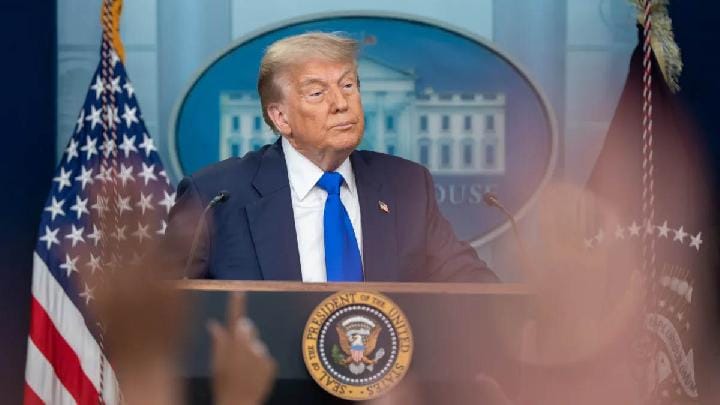
Trump suffers from leg welling and bruised hand. According to the White House spokesperson, Trump has been examined by a physician.
Can Indonesia Negotiate Further Cuts on Trump Tariffs?
3 jam lalu

The Indonesian government is pursuing further negotiations with the United States following the announcement of a 19 percent import tariff.
Today's Top 3 News: Indonesia Trade Minister Upbeat Trump Tariffs Will Boost Investment
5 jam lalu
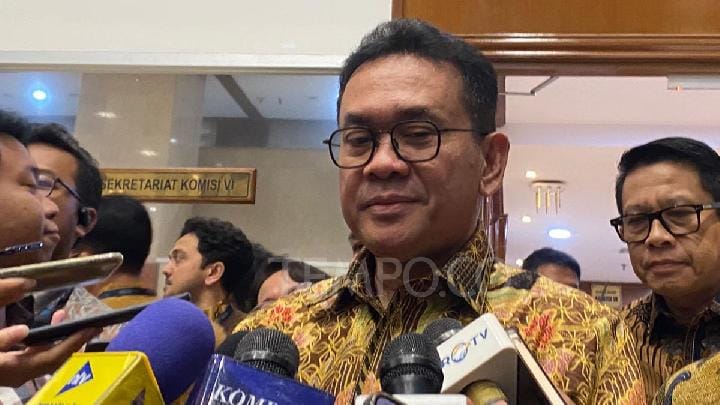
Here is the list of the top 3 news on Tempo English today.
Jakarta Mandates Weekly Exercise for Civil Servants Due to High Obesity Rate
5 jam lalu
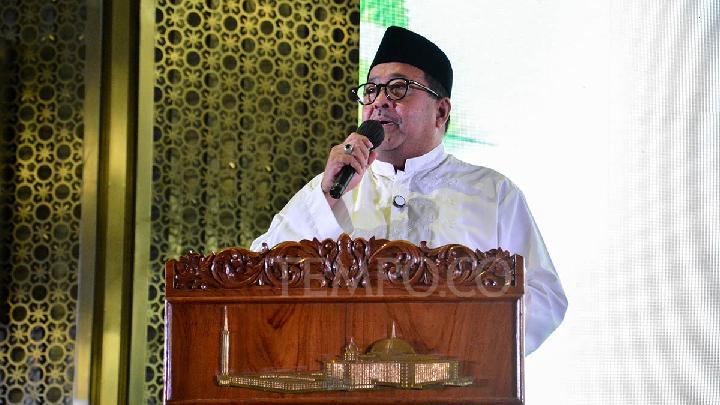
Health examinations conducted in 2024 revealed that 62 percent of civil servants in Jakarta are obese.
Palace Unconcerned by Public Debate on U.S.-Indonesia Tariff Policy
7 jam lalu
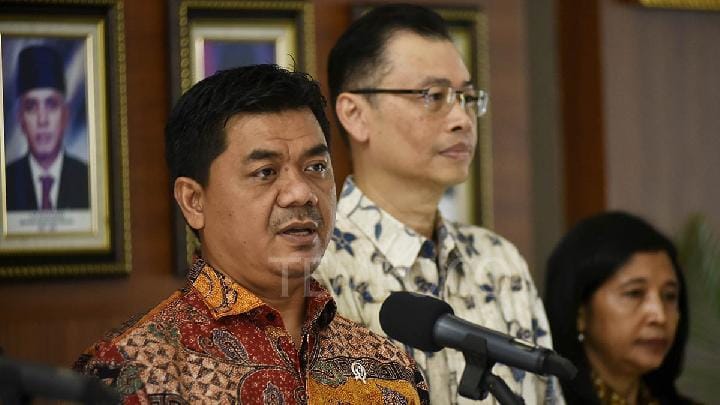
In response to U.S. tariffs on Indonesia, Deputy State Secretary Minister Juri Ardiantoro said there are actually always pros and cons to any policy.
19% US Tariff Reflects Indonesia's Weak Negotiating Power, Analyst Says
14 jam lalu
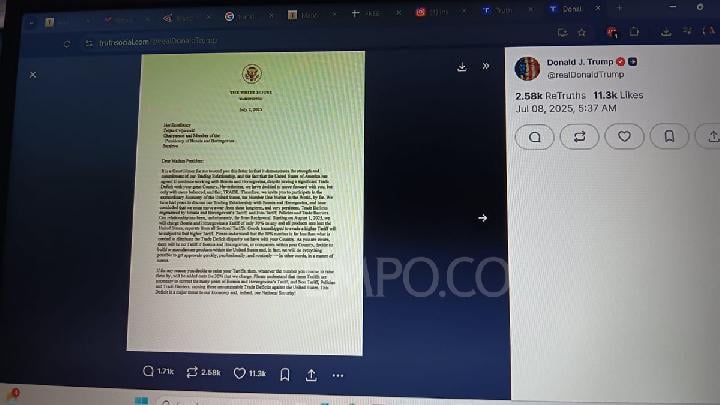
The reciprocal tariff agreement between the US and Indonesia could lead to a trade imbalance and a deficit in the balance of payments.
Indonesia Trade Minister Upbeat Trump Tariffs Will Boost Investment
22 jam lalu

Indonesian Trade Minister believes that Trump's reciprocal tariff cut has the potential to attract significant investment to the country.
Today's Top 3 News: Trump Announces Indonesia to Import U.S. Agricultural Products; Observers Issue Warning
1 hari lalu
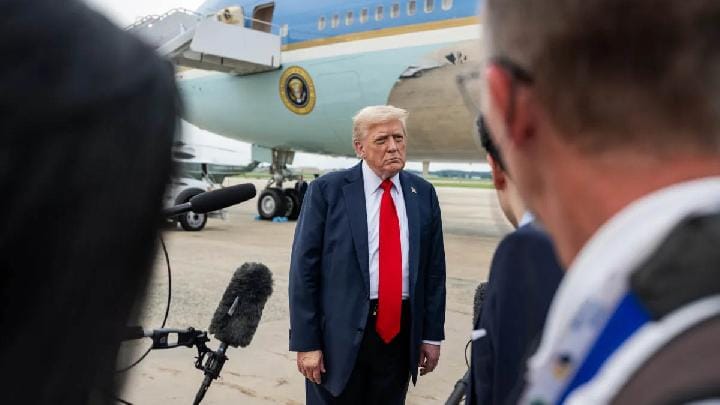
Here is the list of the top 3 news on Tempo English today.
Trump Lauds Prabowo After Tariff Talks: "Popular, Strong, and Smart"
1 hari lalu

U.S. President Donald Trump has officially reduced import tariffs on Indonesian products to 19 percent, down from the previous 32 percent.
DEN Outlines Impact of Trump's Tariff Reductions on Indonesian Economy
1 hari lalu

DEN Chairperson Luhut Pandjaitan responded to U.S. President Donald Trump's decision to reduce import tariffs to 19 percent.












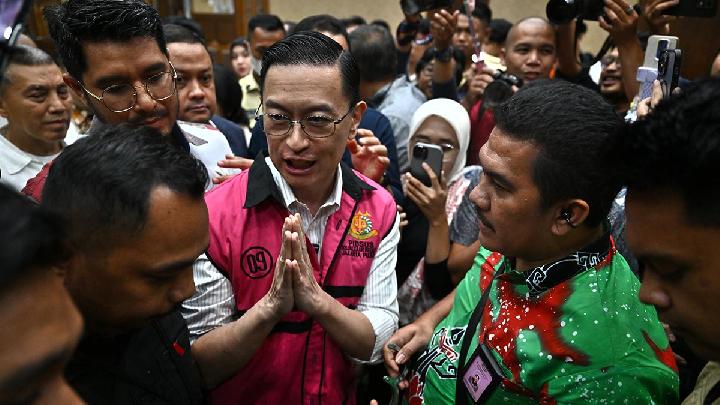
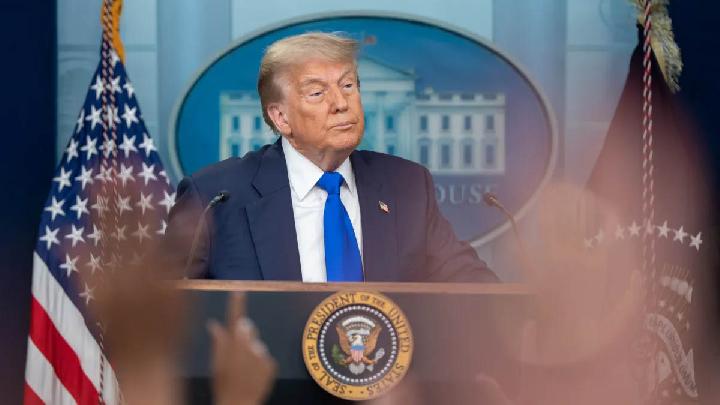


















:strip_icc():format(jpeg)/kly-media-production/medias/5085399/original/084283500_1736394404-caption-buka-puasa-bersama.jpg)

:strip_icc():format(jpeg)/kly-media-production/medias/4990580/original/032364700_1730716355-cara-sholat-hajat.jpg)









:strip_icc():format(jpeg)/kly-media-production/medias/4878837/original/035738800_1719663872-WhatsApp_Image_2024-06-28_at_23.09.07__1_.jpeg)



:strip_icc():format(jpeg)/kly-media-production/medias/4955547/original/083974700_1727529526-GYkI1PIbkAA6R9v.jpg)

